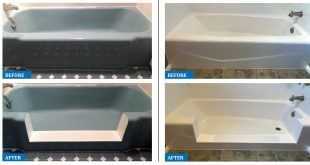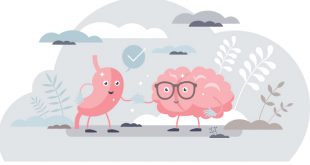By Renee Chillcott, LMHC
 In today’s challenging times, it is understandable that tensions are high, patience is short, and our ability to be positive amidst so many hurdles is wearing thin. You may be experiencing feelings of being anxious, nervous, stressed out, overwhelmed, impending doom, and/or depressed. Do you have depression or anxiety or both? Why do depression and anxiety go hand in hand? And what can you do to make it go away now?
In today’s challenging times, it is understandable that tensions are high, patience is short, and our ability to be positive amidst so many hurdles is wearing thin. You may be experiencing feelings of being anxious, nervous, stressed out, overwhelmed, impending doom, and/or depressed. Do you have depression or anxiety or both? Why do depression and anxiety go hand in hand? And what can you do to make it go away now?
The Merriam-Webster Dictionary defines Anxiety: (1): apprehensive uneasiness or nervousness usually over an impending or anticipated ill: a state of being anxious (2): an abnormal and overwhelming sense of apprehension and fear often marked by physical signs (such as tension, sweating, and increased pulse rate), by doubt concerning the reality and nature of the threat, and by self-doubt about one’s capacity to cope with it: mentally distressing concern or interest.
So, in layman’s terms, anxiety is stress that won’t go away, it takes an ugly turn to “negative and fear town”, and indicates that the “rest and relax” response from the parasympathetic nervous system isn’t there.
What we see in the brain is similar but a little more simply stated. Stress is an event in our life that causes our brain to initiate a calming response and anxiety is a neuron pattern in the brain that impedes the calming response. An anxiety pattern in the brain is typically inherited, although still possible to change, and may or may not be associated with a trauma. This anxiety pattern can be triggered by major stresses, no stresses or by very minor stresses, thus making it an issue for all ages, even young children.
Anxiety manifests in many different ways such as:
excessive worrying
nagging sense of fear
restlessness
overly emotional
negative thinking
catastrophizing
defensiveness
poor sleep
irritability
lack of concentration
feeling overwhelmed
fatigue/exhaustion
Depression as defined by the American Psychiatric Association is a common and serious illness that negatively affects how you feel, the way you think and how you act. Depression causes feelings of sadness and/or a loss of interest in activities once enjoyed. It can lead to a variety of emotional and physical problems and can decrease a person’s ability to function at work and at home.
Often, we will describe depression as a “low” feeling where we just cannot “get happy”. Other times we notice feeling irritable, angry, or overreacting to events, again not able to feel “happy”.
Depression symptoms can vary from mild to severe and can include:
Feeling sad or having a depressed mood
Loss of interest or pleasure in activities once enjoyed
Changes in appetite — weight loss or gain unrelated to dieting
Trouble sleeping or sleeping too much
Loss of energy or increased fatigue
Increase in purposeless physical activity (e.g., hand-wringing or pacing) or slowed movements and speech (actions observable by others)
Feeling worthless or guilty
Difficulty thinking, concentrating or making decisions
Thoughts of death or suicide
As you can see, there is an overlap in the diagnosis of Depression and Anxiety because there is an overlap in the symptoms of Anxiety and Depression as well as an overlap in how you feel.
The medical solution to feeling depressed and anxious is to take medication. Specifically, an anti-depressant, which in some cases can relieve symptoms of anxiety as well as depression. But medication is only a temporary solution. We now need to find out what CAUSES my symptoms of anxiety and depression.
In Neurofeedback we can see this in neuron firing patterns. For example, an excessive Theta (Slow firing neurons) firing pattern in the left frontal lobe can cause major depression:
Whereas a slow firing pattern in the center of the frontal lobe can cause feelings of anxiety.
Here’s a DEPRESSION example:
It is suffice to say that this is why there’s an overlap in medication treatment as well.
Regardless of the diagnosis, Neurofeedback helps change and balance these neuron patterns so that the symptoms improve and the brain and body function better.
WHAT IS NEUROFEEDBACK?
Neurofeedback, also known as EEG biofeedback, has been studied and practiced since the late 60’s. Neurofeedback is a type of exercise for your brain. It allows you to see the frequencies produced by different parts of your brain in real-time and then through visual and auditory feedback, teaches the brain to better regulate itself. Neurofeedback can be used to help detect, stimulate, and/or inhibit activity in the brain safely and without medication. It can help restore a wider “range of motion” in brain states, much like physical therapy does for the body.
While the client sits comfortably watching a movie or pictures appear on the screen (a calm and focused state), the EEG equipment measures the frequency or speed at which electrical activity moves in the areas where electrodes have been placed. This information is sent to the therapist’s computer. The therapist is then able to determine what frequencies are out of balance. For example, when the EEG shows that you are making too many “slow” or “sleepy” waves (delta/theta) or too many “fast” waves (high beta), the therapist adjusts a reward band to encourage more balanced activity. This encouragement or “reward” happens through visual recognition of the changes on the screen and the auditory reinforcement of “beeps”.
WHAT RESULTS SHOULD I EXPECT TO SEE AND HOW LONG BEFORE I SEE THEM?
As every brain is different, every response is different as well. Typically adults will notice feeling symptom relief within 10 sessions and notice things like being calmer, happier, sleeping better, less panic, less worrying, more relaxed and able to enjoy life. Treatments are individualized and as no two brains are alike, no two treatment plans are alike. We will evaluate your symptoms and how your brain is functioning to customize training for you. All you have to do is call our office to make the appointment!
WHAT ELSE COULD I DO TO FIGURE OUT THE CAUSE? COUNSELING –
Mental health counseling can open up a world of exploration when it comes to anxiety and depression. How we cope, the connections we make, and our past trauma can all contribute to the current state functioning and feeling that we are experiencing. There is no “right or wrong” way to benefit from counseling. Rather, it’s all about the “fit” and needs of our clients. At the Brain and Wellness Center we offer many different options and techniques of counseling to fit those needs. Different counseling styles and approaches for individual clients of all ages, couples and families; make us a unique and inviting place to heal and grow. Our therapists offer additional services such as EMDR, Play therapy, Cognitive Behavioral Therapy, Talk Therapy, and Couples and Family therapy.
NUTRITION –
Lately, there has been more attention paid to the “gut-brain” connection. We see that malabsorption, slow metabolism, toxic metals, yeast, auto-immune disease, and inflammation are just a few of the conditions that exacerbate or cause mood changes. And these can occur from eating healthy foods such as broccoli or kale. Everyone’s body is working at a unique level and what may be beneficial or healthy for one person, can cause stomach upset and anxiety for another. At the Brain and Wellness Center, we offer services that measure the mineral content in your hair. With this information, a world of metabolic events can be interpreted. Not only can your nutritional status be viewed but we can also learn much about how efficiently your body is working. We can detect toxic metals, mineral and element imbalances, metabolism rates and absorption issues, as well as profiles including but not limited to hypoglycemia and candidiasis.
HOW DO I GET STARTED?
Getting started is easy, just give us a call, text or e-mail. The Brain and Wellness Center staff will answer all of your questions, and help you get scheduled. If you are wondering what services are best for you? We can help determine that in a telephone consultation and intake. Contact us today! Brain and Wellness Center, 7301
W. Palmetto Park Rd., Suite 102A, Boca Raton, FL 33433. (561) 206-2706, e-mail us at info@bocabraincenter.com, or text us at (561) 206-2706 or visit our website at www.BocaBrainCenter.com.
7301 W. Palmetto Park Rd.
Suite 102A, Boca Raton, FL 33433
(561) 206-2706
www.BocaBrainCenter.com
 South Florida Health and Wellness Magazine Health and Wellness Articles
South Florida Health and Wellness Magazine Health and Wellness Articles




